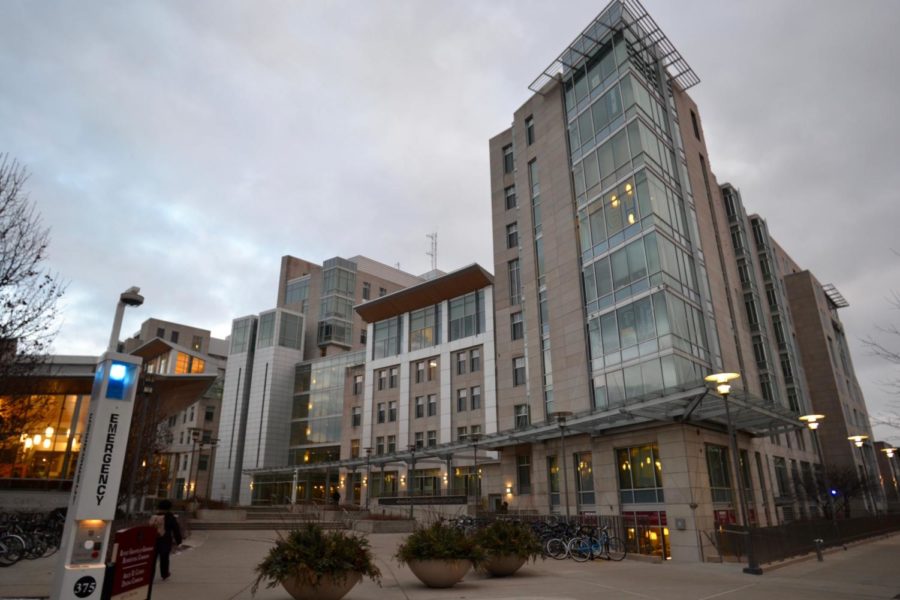Student Government (SG) Assembly passed a bill allowing students to request SG records and discussed the Graduate Council’s preliminary plans to form an independent governing council at the SG Assembly meeting on Monday. The SG Assembly also approved the creation of an ad-hoc committee focusing on accessibility for students with disabilities on campus, and approved the restructuring of the Campus Committee on Sustainability as a standing committee.
At the meeting, Student Government unanimously passed the Freedom of Information Act (FOIA), a bill establishing public access of SG records as well as the ability for students to request information from SG. Prior to the introduction of the FOIA on Monday, SG did not formally allow students to access bills, statutes, and resolutions passed by SG, College Council, or Graduate Council. SG did not previously publish formal executive orders, directives, guidelines, or funding decisions issued by the Executive Slate.
According to David Liang, Class of 2022 representative and sponsor of the bill, “Nobody knows what Student Government is up to. I don’t even know what I’m up to sometimes because there’s nowhere to find laws and decisions we’ve made in the past. This promotes transparency in Student Government.”
The FOIA establishes a section of the SG website where students will be able to view all additions to the legislative and executive records of SG, which will be implemented in the next few days. The legislative record will consist of all bills, statutes, and resolutions enacted by the Assembly, the College Council, and the Graduate Council. The executive record will consist of all executive orders, directives, guidelines, and funding decisions issued by the Executive Slate, Executive Committee, and any standing Student Government committees. Only policies enacted by SG are covered under the FOIA.
Information that cannot be shared due to federal, state, or local laws, as well as information that violates University of Chicago policy, will be withheld.
Students may also petition SG for additional information regarding current or past legislative or executive records, which must be made available to the petitioners within 120 hours of making a request. Students can petition for information by contacting Natalie Jusko at sg-vp-administration@uchicago.edu.
SG also unanimously passed a resolution presented by Student Body Vice President Malay Trivedi to create the Student Accessibility and Disability Advocacy Committee, an ad-hoc committee intended to evaluate the resources available to students with disabilities on campus. The committee will report to Student Government, and advocate for relevant changes on campus that could benefit the community. The committee will consist of five or more members. Members will include both students with disabilities and allies, from the College and Graduate divisions. The committee will not be allocated any funds from SG.
Class of 2021 representative Alex Levi and Eugene Han, vice chair of the Committee on Campus Sustainability (CCS), presented a resolution to restructure their committee from an ad-hoc committee to a permanent SG standing committee. The CCS currently organizes the Sustainability Czar Pilot Program along with University Housing, the Clean Up in Hyde Park event on Earth Day, and hosts speakers and forums on campus relating to sustainability. The CCS claimed that standing committee status would demonstrate SG’s support for campus sustainability, and give the CCS greater autonomy in regard to events, partnerships, and RSO allocations related to campus sustainability. SG representatives against the restructuring of CCS cited the potential for additional allocations of funds from other SG initiatives once CCS is restructured as their rational behind their dissent.
The bill restructuring the Committee on Campus Sustainability as a standing SG committee passed with 13 votes for, five votes against, and two abstentions.
The SG Assembly also discussed the possible restructuring of SG, and the potential withdrawal of the Graduate Council from Student Government. The Graduate Council, along with the Executive Slate, supported future plans for the Graduate Council to create a separate but equal governing body, meaning that the Graduate Council will no longer be a part of SG. This proposition was primarily due to concerns about scheduling and representation.
Graduate Council representatives said they have a difficult time attending meetings due to commitments outside of the University, especially during the summer when graduate students may have full-time jobs or internships. The Graduate Council representatives also addressed disproportionate representation between the different schools, citing the fact that, for example, both the 3,000-student Booth School and 700-student Law School have two representatives each.
According to the Graduate Council representatives, most other institutions have separate undergraduate and graduate student governments. Representatives said that despite the University’s “[pride in] being quirky, this may be one instance where we may want to be like other peer institutions.”
If the Graduate Council gains independence, it plans to increase representation to balance out this discrepancy, and plans to decrease the number of meetings to accommodate the busy schedules of graduate student representatives.







